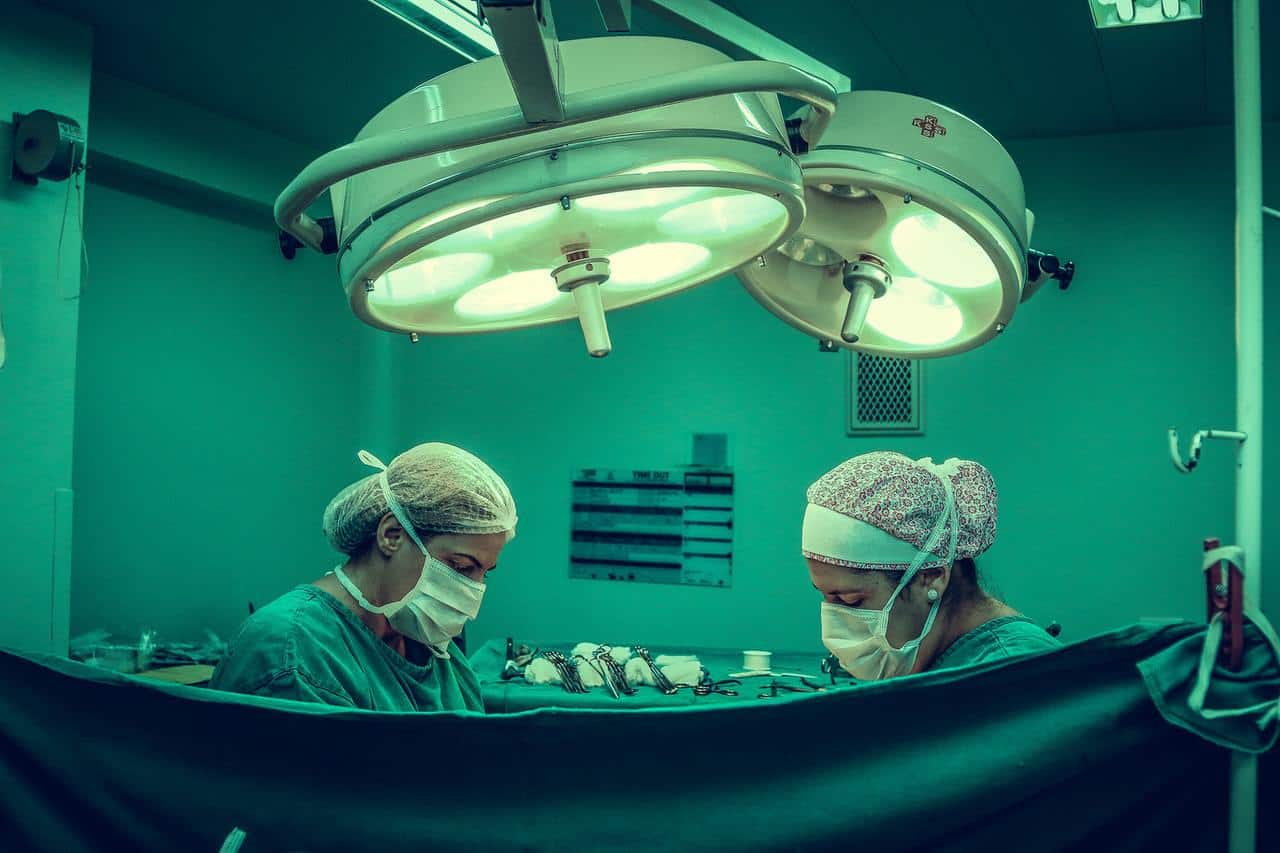
Gastroenterology is a field of medicine that involves a wide range of study of the functions of the digestive system and its disorders and diseases. While most of the diseases of the digestive system, particularly the gastrointestinal (GI) tract, require a change in diet and lifestyle as well as medication, some diseases are serious enough for a patient to become a candidate for surgery. However, surgery itself is a different field from the field of medicine.
Gastroenterologists specialize in the field of internal medicine and are experts in medically treating gastrointestinal diseases. However, they are not trained in performing surgery and are therefore not considered to be surgeons.
This article will explain the nature of gastroenterology and the diagnosis and treatment procedures that gastroenterologists perform to treat various gastrointestinal diseases. It will also illustrate the various GI diseases that require surgery and distinguish the treatment procedures between gastroenterologists and surgeons.
What is a Gastroenterologist?
Gastroenterology is the field of medicine that specializes in the functions of the digestive system. It also involves the understanding of the various diseases of the digestive system and medical ways to return the digestive system back to a normal state.
Dr. Kavin Nanda explains that Gastroenterologists are the experts in the proper functioning of the digestive system. They specialize in determining the condition of the GI tract in terms of how it handles food and moves materials through the digestive tract and how it removes waste from the body. They also assess the capability of the digestive system to break down and absorb nutrients from food.
Gastroenterologists diagnose and medically treat gastrointestinal (GI) diseases. They mostly conduct endoscopy and colonoscopy to check the condition of the gastrointestinal tract.
However, the field of gastroenterology is a subfield of internal medicine. As such, gastroenterologists are only trained in medically treating diseases of the gastrointestinal tract.
Surgery requires additional years of training as a general surgeon and several more years specializing in surgery of the GI tract.
Diagnostic and Treatment Procedures
Gastroenterologists perform several procedures in diagnosing diseases of the GI tract. The staple diagnostic procedure is endoscopy where-in a narrow tube equipped with a light and camera is inserted through the esophagus to check the condition of the GI tract. A colonoscopy involves a similar procedure when checking the condition of the colon and anal canal, but the colonoscope is inserted through the rectum.
For cases involving the middlemost parts of the GI tract, such as the small intestines, gastroenterologists can use capsule endoscopy where a small pill camera (a camera enclosed within a capsule) is ingested into the body and takes several pictures of the small intestine at high frequencies and deliver images to a receiver strapped along the patient’s waist. This procedure is especially useful because endoscopy often stops at the entrance of the small intestine or the duodenum.
For cases of inflammation and fibrosis, gastroenterologists can perform a biopsy by extracting a small tissue in the affected organ and interpreting results and making treatment recommendations. Depending on the severity of the condition, the gastroenterologist can prescribe medication or refer the patient to a surgeon for operation.
Gastroenterologists can also conduct imaging tests, especially at the beginning of the diagnostic process. Imaging tests are often conducted because it is non-invasive and can provide a comprehensive view of the status of the patient’s GI tract. This can involve X-rays, CT scans, ultrasound, and MRI scans.

More specific imaging tests can involve using scoping equipment to provide a visual image of the GI tract. The endoscopic ultrasound uses a transducer attached to the endoscope to emit sound waves as it travels through the GI tract, scanning the surrounding tissue of the GI tract and sending images to the computer. This imaging test works from the esophagus to the stomach.
Imaging test for the small intestine involves performing double-balloon enteroscopy. This imaging procedure involves using a special enteroscopy equipped with an overtube that contains a small balloon at its tip. The tube is inserted either through the esophagus or the rectum depending on the area of the small intestine to be examined. The balloon is inflated as it enters the area of the small intestine and the contact between the balloon and the intestinal wall provides real-time imaging of the area.
The Endoscopic Retrograde Cholangiopancreatography (ERCP), moreover, uses the endoscope to check the condition of the GI tract and also uses an X-ray for imaging. This diagnostic procedure involves inserting the endoscope through the esophagus until the duodenum.
Afterward, the gastroenterologist will insert a tube that contains a dye through the scope and injects it into the area. This dye allows the x-ray machine to provide accurate imaging of the walls of the GI tract.
For treatment, Gastroenterologists perform non-surgical treatment of the diseases of the GI tract. These treatment procedures are often minimally invasive. One of the common treatment procedures is esophageal dilation. This treatment procedure involves inserting an endoscope into the esophagus and inflating a small balloon to stretch the walls of the esophagus. The gastroenterologist can use anesthesia on the throat and provide sedatives to help the muscles relax during treatment.
Usually, however, Gastroenterologists are primarily responsible for long-term care for patients. They are responsible for managing the daily condition of the patients in terms of symptoms and side effects as well as coordinating care with surgeons for serious cases.
Diseases That Gastroenterologist Treat
Gastroenterologists treat GI tract diseases that require medication. These diseases include hepatitis, colitis, peptic ulcer, colon and pancreatic cancer, inflammatory bowel disease, and reflux esophagitis.

They can also treat frequent cases of heartburn and more serious cases like gastroesophageal reflux or GERD. They can also provide recommendations for diet and medication for people with Celiac Disease where the immune system damages the small intestine when it detects gluten in the body.
Diseases that Require Surgery
Surgery is necessary for removing cancerous and pre-cancerous mass in the lining of the GI tract as well as damaged parts of the GI tract. It can also repair parts of the digestive tract to prevent the development of more serious diseases.
Surgeons can perform transoral incisionless fundoplication (TIF) to manage the symptoms and treat GERD. This process will repair or reconstruct the valve at the entrance of the esophagus that prevents acid reflux from burning the walls of the esophageal lining. Late treatment of GERD can cause Barrett’s Esophagus or cancer.
For more serious cases of GERD, surgeons can perform ablation like Barrx Endoscopic Ablation to burn the injured or infected tissue and prevent further infection. HALO ablation is a type of ablation that removes the injured tissue to minimize the risks for the entire esophageal lining.
For surgery on the stomach and the intestines, the surgeon can perform open surgery or minimally invasive surgery. Open surgery involves a large opening in the body while minimally invasive surgery only requires a small incision to perform laparoscopy surgery.
Bowel resection is a type of open surgery that involves removing parts of the intestine that are inflamed or infected and inserting healthy parts into the system. Surgeons perform this operation for cases of diverticulum or formation of small pockets in the colon as well as ulcerative colitis and Crohn’s Disease.
Cholecystectomy is another form of open surgery that removes the bladder for people with cirrhosis and gallbladder cancer. This operation requires pushing the muscles and organs aside to reveal the gallbladder for extraction.
Minimally invasive surgical operations involve laparoscopic surgery which only involves making small incisions to insert small instruments for removing or repairing parts of the GI tract. Endoscopic surgery is also a minimally invasive surgical operation that involves inserting the endoscope through the esophagus and inserting small instruments through the scope to perform surgery.

More advanced surgery involves using robotic, mechanical arms for holding the camera and surgical instruments. This form of minimally invasive surgery allows the surgeon to perform surgery in tight spaces while providing greater flexibility for more complex operations. Usually, robotic surgery is performed for extracting gallstones within minimal incisions.
Are Gastroenterologists Surgeons?
A gastroenterologist cannot be considered a surgeon given their focus on internal medicine. However, they remain in close coordination with surgeons, particularly colorectal surgeons.
Colorectal surgeons are specialists in surgery involving the colon and rectum area. While gastroenterologists are specialists in internal medicine, colorectal surgeons are specialists in general surgery.
Gastroenterologists can request a consultation with a colorectal surgeon for serious cases of Crohn’s Disease or ulcerative colitis. They are also often kept informed within the treatment process to manage the condition of the patient after surgery.
Gastroenterologists may not be considered surgeons, but the inherent relationship between the two disciplines and professions makes the surgical and treatment procedures interrelated. The collegial and professional relationship between gastroenterologists and colorectal surgeons ensures complete and all-around care for patients with severe GI tract diseases.
Final Thoughts
Gastroenterology involves using medicine to treat gastrointestinal diseases. It also involves a wide range of patient management and care. Despite the lack of training of gastroenterologists in performing surgery, the relationship between gastroenterologists and surgeons in terms of utilizing and coordinating their specialized training ensures well-rounded treatment of patients, especially those with serious GI tract diseases.






